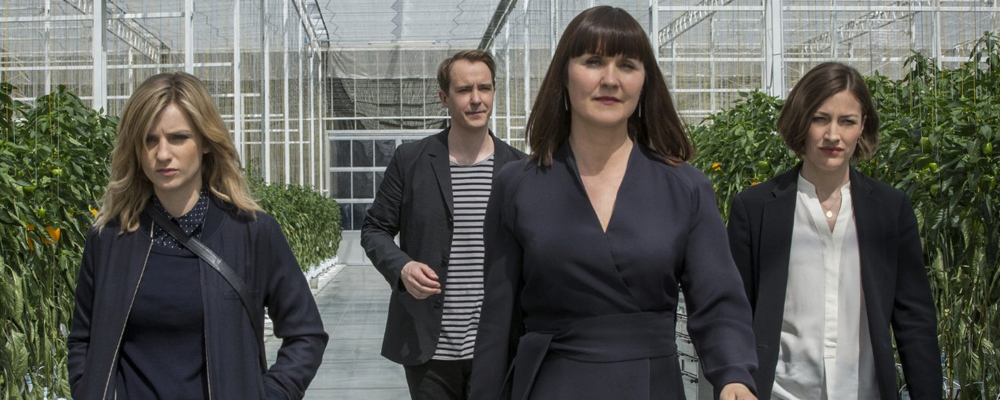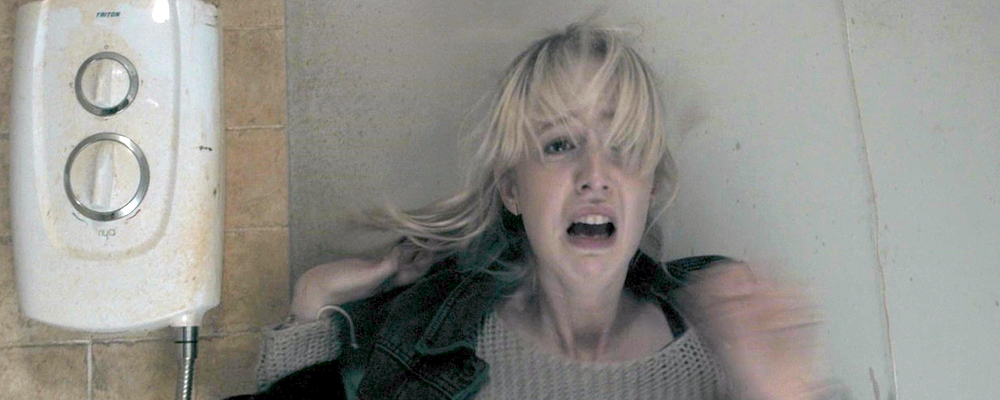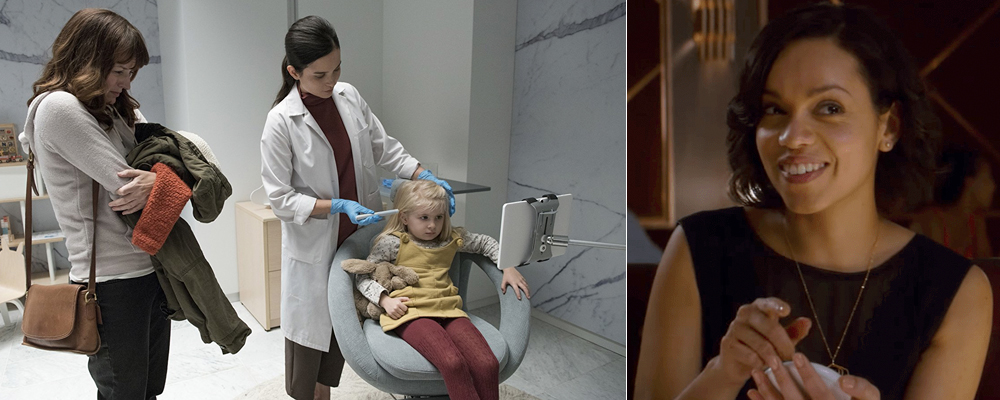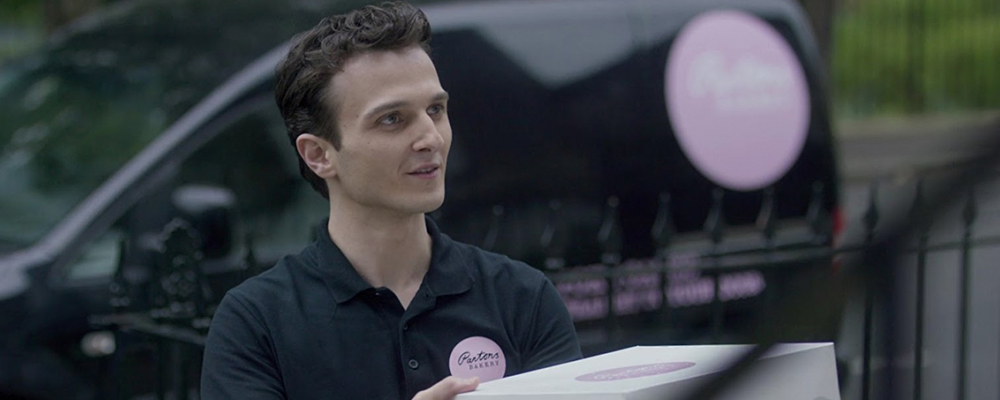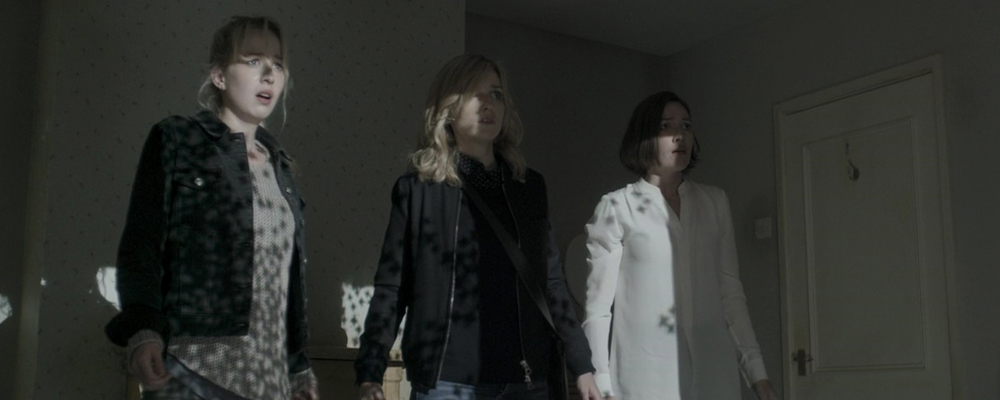‘Black Mirror’ Returns With Visions of Tech-Inspired Love and Dread
Alci Rengifo
We live in a world where our lives are constantly reflected on the screens of our cherished devices. Yet as fast as the technology is changing, we remain ever so human. No show has captured this truth like “Black Mirror,” the disturbing, dark and at times achingly romantic anthology series created by Charlie Brooker. After three seasons which established it as a cult phenomenon (two on Britain’s Channel 4 before being picked up by Netflix), the show now returns for a fourth offering that is just as strong and creative. It features six episodes where humans in a near future experience their obsessions, murderous impulses and terrible loneliness through technological marvels that turn horribly perverse. It’s a kind of “Twilight Zone” for our time, as reality is altered and bent, but its messages are deeper and unsettling.
Crafted like a selection of short stories, the six episodes are written by Brooker and are brought to life by an eclectic group of renowned filmmakers. This season maintains what has always made this show special: The technology is really just the background to what are truly insightful stories about human behavior, how we live and dream. The season’s first episode, “Arkangel,” is directed by Jodie Foster and focuses on a mother played by Rosemarie DeWitt, who is provided with a way to track her young daughter through an implant that allows her to access her point of view and location (she can even “censor” unwanted imagery such as bloodshed or barking dogs). It’s the ultimate form of parental control, and when the daughter grows into a teenager (played by Brenna Harding), tensions burn as she seeks her own autonomy. The way the technology is imagined is ingenious, but the power of the episode lies in its metaphor of over-cuddling and the futility of denying your child the realities of life.
The stand-out epic in this season is the feature length episode “USS Callister.” An ingenious episode directed by Toby Haynes, it tells a wickedly savage story of an office loner (Jesse Plemons) who gets revenge on his co-workers, including the attractive office girl he can never have (Cristin Milioti), by trapping them in a Star Trek-style game universe under his absolute, demented control. Haynes uses the aesthetic of the J.J. Abrams “Star Trek” movies, including Dutch angles as crew members run through the ship’s halls, but turns it upside down. Only Brooker could craft an episode that works as an exciting space adventure and profound study of injured psyches let loose. There’s a perverse humor as the loner forces his victims to become his ship crew as he lives his own, Captain Kirk style fantasy. Anyone who resists can be turned into an unappealing alien creature. There are moments of visual beauty in this episode in its cinematography and production design, evoking classic images from vintage sci-fi. Yet we find ourselves thinking about the lonely souls wandering around out there, slighted and unfulfilled, daydreaming of how they can get even. In a way it’s also an interesting commentary on one aspect of the whole cosplay culture, which more than anything is about shedding your regular self to become something more grand and cool. It’s easy to imagine a future where you don’t just dress as Iron Man, you can literally be him by jacking into a program.
In the third season of the series, Brooker surprised many with the beautifully romantic vision of the now classic episode “San Junipero,” where two women traverse different eras until they finally live as eternal lovers in a cyber heaven. In the fourth season Brooker gives us a different vision of love in this tech-obsessed world that is just as heavy, wise and written with a sense of the loneliness so common in a fast-paced society. “Hang the DJ” imagines a future where dating apps not only find you a match, but chart your love life until you find “the one.” You meet your match and the dating system lets you know if you’re meant to be with this person for a few hours (which usually means a regular hook up), a few days, months or even years. Two prospects (Goergina Campbell and Joe Cole) hit it off naturally when they meet, but the system only gives them a few hours before they’re off to their next matches, yet there’s that sense maybe those sparks they felt were quite genuine. Directed by Timothy Van Patten (Game of Thrones), this is an episode of humanity and pathos. With an almost sentimental elegance, it is about how we seek partnership and love today. Through technology we try to become less atomized, and we seek intimacy through casual encounters even as we seek something better. The whole episode is a beautiful metaphor for how experience can eventually guide us to make the right choice. It’s a side of Brooker that is truly eloquent.
The other episodes in the season are just as ingenious and range in tone and genre. “Crocodile,” directed by John Hillcoat (“The Proposition,” “The Road”), is a noir worthy of Brian De Palma where a motivational speaker realizes she can’t cover up her crimes in a world where technology can be used to screen your memories. “Metalhead” is a survivalist thriller where a woman runs from a four-legged robotic hunter-assassin. Shot in beautiful black and white, it is a nerve-wracking 41 minutes by David Slade (“Hannibal,” “American Gods”).
But one of the crowning episodes is surely “Black Museum.” A gothic parable worthy of Stephen King, it follows a young road tripper (Letitia Wright) who comes across a museum specializing in tech items used in notorious crimes. The museum’s owner, played with toxic glee by Douglas Hodge, displays various gadgets including a cap used to transmit sensations which drove a doctor to become a pain addict, and one of the show’s most brutal imaginings thus far: The digital, but conscious projection of a convict forever strapped to an electric chair for the entertainment of visitors who wish to pull the lever. Spoiling more of this episode would be a real crime, but with its baroque direction by Colm McCarthy, it is an unsettling tale of how far we’ll go to take pleasure from pain, and how there’s no limit to what can be sold as freakish attraction. There is also a powerful, political subtext more than fit for our times.
“Black Mirror” unsettles because it feels so true. Even the way the show’s technology is designed is ingenious in how familiar it all seems in the slick styles reminiscent of our phones, tablets and chargers. But the great, original touch is how it’s not about the gadgets, but about ourselves. Brooker knows that even as we get more comfortable with pushing and swiping, we remain creatures of envy, loneliness and longing.
“Black Mirror” Season 4 premieres Dec. 29 on Netflix.


